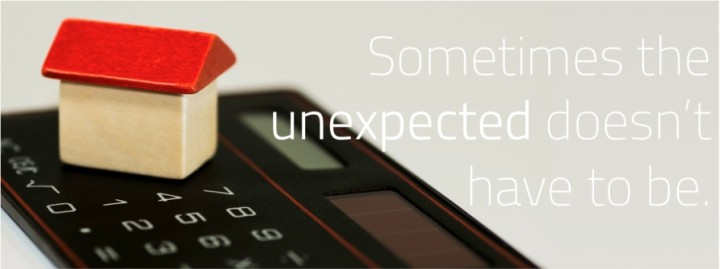How can you plan for the unexpected… and, if you’re expecting it, then how can it be unexpected?
Well, those are good questions!
Planning and arranging your spending plan to include the ‘unexpected’ is a wise approach to take. When we talk about unexpected costs we generally mean services or commodities that are over-and-above what you would normally expect, but might be able to find out with some deeper digging.
UNEXPECTED ACCOMMODATION COSTS
Electricity and municipal services are costs that you will incur in addition to your bond costs. If you’re renting, or looking to move to a new rental, you may be expected to pay for certain services for which you didn’t have to pay previously.
Different municipalities have different rates and after a municipal evaluation these can increase, leaving you with a higher account to pay; an extra cost that was unexpected! Dig deeper and find out.
Before buying a house or signing a rental agreement, make sure you have asked about the extra costs that you will be expected to pay. Don’t be afraid to ask questions, many agents will be quick to sell you on the most attractive aspects of a deal in order to push it through for their commission, but you have a right to slow the transaction down and ask all the questions that you want in order to make an informed decision and equip yourself to plan for the unexpected.
UNEXPECTED TRAVEL COSTS
Fuel costs seem to be amongst the highest contributing factors to the increasing costs of all other services and commodities. Whilst experts try to forecast these increases, we never really know what the first Wednesday of every month will hold until about two weeks prior to the impending fuel price change.
All we know for certain is that the costs of fuel will keep increasing. In order to plan for these increases, always factor in an extra portion of cash for your monthly fuel budget. In addition to the increases in fuel, you may need to run more trips or take a longer unexpected journey.
You may need to go somewhere that has a higher parking tariff and if your budget is too tight, you will find yourself stressing about the costs involved for a trip that might be for your own relaxation and enjoyment!
If you’re wanting to spend a night out with your partner, you don’t want to stress about the fact that it was an extra 100km out of your normal travelling and you have to pay overnight parking too! You want to enjoy the time and rest assured that you’ve planned for the unexpected.
If you are considering a new job, remember to consider how you will get there and how much that might cost you.
Here are some questions to ask:
- How much further will I have to travel?
- Is the parking secure and how much will that cost?
- Do I have to pay for a parking bay in the building?
- Will I need a tag for entry/exit?
- How much time will it take me? (this might be a huge unexpected cost in your time)
- Will I have to pay tolls?
- What will the traffic flow be like? (sitting in slow traffic will increase your fuel consumption)
- Could I carpool?
- Is my current vehicle the most suitable for the majority of my transport needs?
Nearly everything that we choose to do with our time can cost us money. Sometimes these costs are clear, but sometimes they are unexpected. I have much experience in helping my clients to plan for these costs – perhaps we should hook up and the unexpected won’t have to be unexpected.
